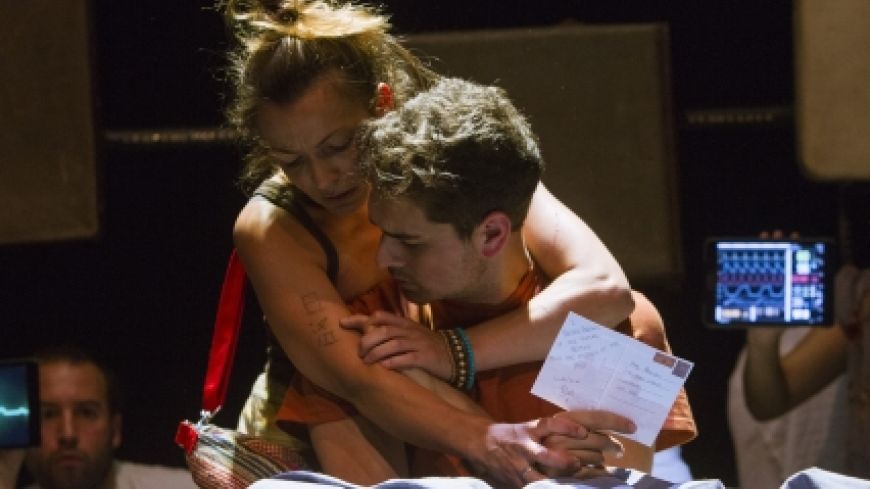
If the need to communicate is central to human nature, defining who we are and governing our relationship with society, what happens when communication is reduced to postcards and tweets?
Themes of tangled identity and communication are at the heart of this striking production, which links characters over a span of nearly 30 years.
Its circular path starts in the present day amidst the confusion of a bomb blast at an embassy in Mumbai. Caught up in this Aadesh, a world traveller whose communication with his estranged family is limited to a few postcards which bestow his daughter, Meg, with puzzling clues into the father she never knew.
Around this central hub the play rotates showing past and future. In 1997, the young Aadesh is in love but at odds with Hannah, his New Labour poster-girl sweetheart, in espousing anarchy. In the future Meg is also having trouble with affairs of the heart in dealing with the legacy of her father and in her relationship with the messianic Julian, a "digital Christ" who is trying to wean his followers off of 24 years of social media to reconnect with real life. The story is given further roots in a fleeting reference to Heloise and Abelard - 12th century separated lovers, whose story is in part mirrored.
The play throws up questions of communication, choice, consequence, and coincidence underlying the face paced mix of scenes. In this the plot is almost too ambitious and the ticking-bomb tensions partly fizzles out.
What is explosive is the way that it is brought to the stage. A sparse frame of suitcases forms the background for projections and film footage, supplemented with the inventive use of hand-held tablets. Skilful performances, combining elements of physical theatre, played over a wonderful cinematic soundtrack are captivating throughout.
With a script which communicated more clearly this distinctive approach could represent a brave new world of theatre.
Show times: 1- 25 (not 13) August 2013, 1.20 pm.
Ticket prices: £6 to £10.50 (£9.50).

